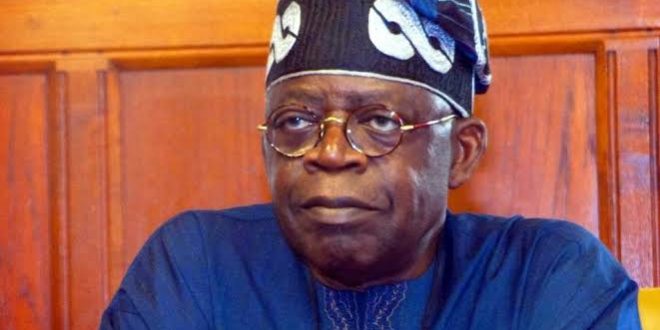By Funmi Ojo
President Tinubu’s first year in office has been marked by a blend of hopeful strides and daunting economic challenges.
His aggressive fiscal policies aimed at stabilizing the economy have brought mixed results, often resulting in widespread hardship.
A pivotal moment was President Tinubu’s decision to remove fuel subsidies, signaling a significant shift in economic strategy.
However, abrupt monetary policy changes under former President Buhari, particularly those implemented by the Central Bank of Nigeria (CBN), also contributed to the nation’s economic turbulence.
Thus, the sudden currency change, known as “nairalizsation,” exacerbated the difficulties faced by the population.
Initially, these policies received applause, but their effectiveness has come into question as economic challenges persist.
Leading economist Bismark Rewane recently addressed Nigeria’s economic situation at the Lagos Business School with a presentation titled “12 Months After Reform: Is Nigeria Breaking Out or Breaking Down?”
An analysis of Nigeria’s economic indicators from Q1 2023 to Q1 2024 presents a mixed picture of progress and ongoing challenges:
GDP Growth:
- 2023 (Q1): 2.31 percent
- 2024 (Q1): 2.98 percent
The GDP growth rate increased modestly from 2.31 percent in Q1 2023 to 2.98 percent in Q1 2024, with the service sector contributing 58 percent.
This suggests a gradual economic recovery, but it still falls short of the potential for a developing economy.
Inflation Rate:
- 2023 (Q1): 22.04 percent
- 2024 (Q1): 33.2 percent
Inflation has also surged alarmingly from 22.04 percent to 33.2 percent, driven by the removal of fuel subsidies, insecurity affecting farmers, and currency depreciation.
Exchange Rate (Naira to Dollar):
- 2023 (Q1): 460
- 2024 (Q1): 1303
The significant devaluation of the naira against the US dollar, from N460 to N1303, highlights deep-seated economic vulnerabilities exacerbated by policy reforms.
Oil Production (Million Barrels Per Day):
- 2023 (Q1): 1.26
- 2024 (Q1): 1.23
Despite a slight decrease in oil production, operational inefficiencies and global market fluctuations continue to challenge the oil sector.
External Reserves:
- 2023 (Q1): $34.26 billion
- 2024 (Q1): $32.95 billion
Dwindling external reserves indicate increased pressure on the country’s financial buffers, raising concerns about the sustainability of current economic policies.
Stock Market Capitalisation:
- 2023 (Q1): ₦29.54 trillion
- 2024 (Q1): ₦59.12 trillion
The remarkable growth in stock market capitalisation reflects heightened investor confidence despite economic instability.
To address these challenges, comprehensive policy measures are recommended, including a managed float exchange rate regime, strict institutional reforms, public-private partnerships, and improved governance and transparency.
Despite these hurdles, Nigeria has the potential to navigate through these economic challenges with strategic interventions and reforms
 National Telescope national telescope newspaper
National Telescope national telescope newspaper



